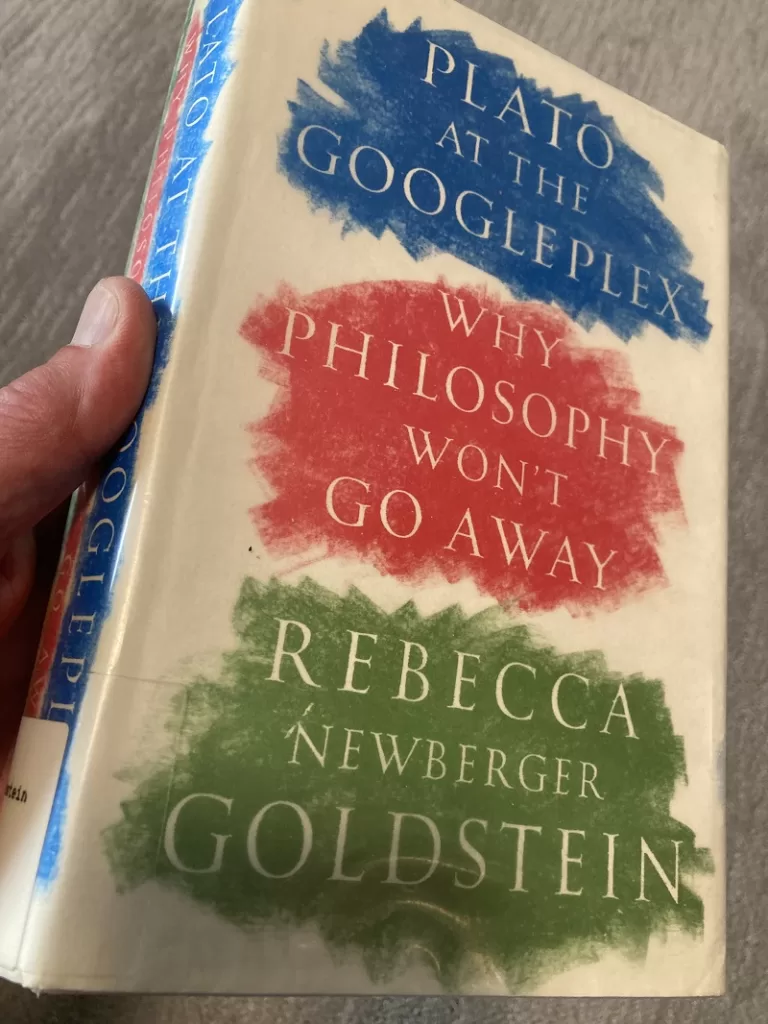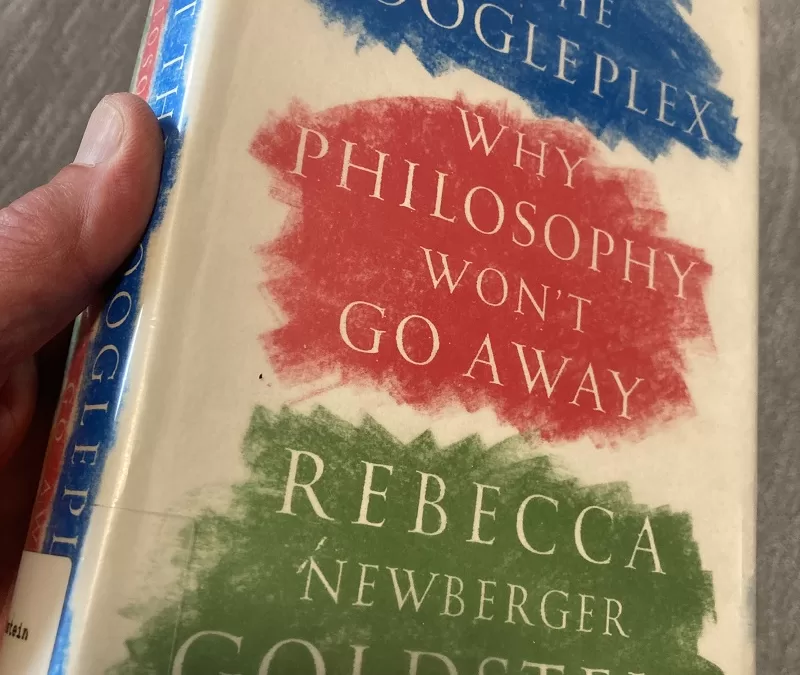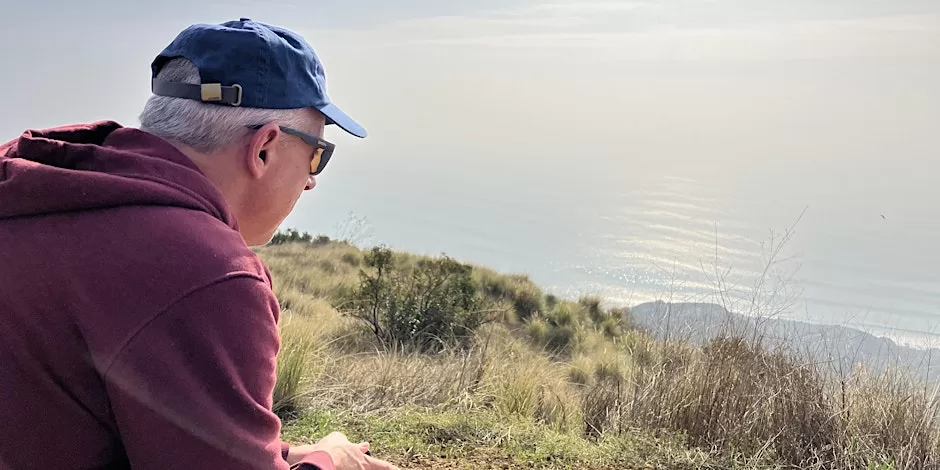
A few thousand years ago or so, during the Golden Age of his city, a man wandered the streets engaging with just about anyone willing to speak with him.
(While I am not typically prone to make judgments about one’s appearance – publicly anyway—I am compelled here, for reasons you will soon see, to speak to the appearance of this man.)
By all accounts, he was lacking in many of the physical attributes that were prized at the time. Indeed, although many who encountered him struggled to define beauty, as he asked them to do, our wanderer was considered ugly. I should add that he rarely bathed nor did he attend to the other grooming arts that were common among his people. So, not only was he ugly, he most certainly smelled bad, as well.
While these descriptions are unremarkable in themselves, I remark upon them now because our fellow was a most remarkable man. He had many enthusiastic followers and, given his physical state, we can only conclude that there must have been something else about him that drew their attention. As a matter of fact, we should all consider that despite his physical offensiveness, whatever else he had to offer must have been quite profound.
If you paid attention in Philosophy 101, you’ll know that I speak of the ancient Greek philosopher, Socrates; that the city he strolled through was Athens; and that his most famous pupil was Plato. Indeed, it was Plato who recorded many of these moments so that we can still today engage with them and consider their import.

I think of this now after reading Plato at the Googleplex: Why Philosophy Won’t Go Away (2014) by modern philosopher Rebecca Newberger Goldstein, who argues that asking questions and engaging with one another is as important as ever. (The Googleplex is the Corporate Headquarters of Google—part of Alphabet, Inc.—in Mountain View, California.)
While philosophers had been asking questions long before Socrates and Plato were born, they stand tall due to the nature of their questions. The thinkers that preceded them were natural philosophers who largely limited their questions to the physical world and the heavens. While many of their questions have been answered—for instance we now know what causes lightning and tides, and that all things on earth are composed of differing combinations of elements—we should be forever grateful to these philosophers for asking their questions in the first place.
While natural philosophy has given way to science, Plato at the Googleplex suggests that we may have more to learn. Instead of looking outward at the physical world, however, Goldstein’s Plato asks inward-looking questions while exploring what it is to be human.
These moral philosophers might ask: What is beauty? What is wisdom? What is virtue? Others examine how best to organize society. What is justice? What is the best form of government? And, perhaps most important—and what should surely matter to us today—What makes a life worth living?
One of the most accessible paths to understanding moral philosophy and its rather large questions is to consider Plato’s Allegory of the Cave, found in The Republic, a foundational text in the study of moral philosophy.
Imagine that human beings are seated prisoners chained inside a cave so that they cannot turn around. A fire burns behind them while other humans cast the shadows of manufactured objects to the wall the prisoners see. The prisoners give the shadows names like “tree” and “horse.” As Goldstein’s Plato explains, “what [the prisoners] would think of as the truth would be nothing but the shadows of the manufactured objects behind them.”
A prisoner is set free and sees that this reality is only a shadow of reality, and further, once he escapes the cave and adjusts to the light, which is extremely difficult, he starts to see a “real” tree and a horse, and all the other things. When he returns to the cave and explains, he is deemed crazy.
When confronted with new ideas that challenge what we believe, humans seem reflexively skeptical. The habits cultivated among moral philosophers attempt to overcome this reflexivity and nurture an open-mindedness which, I’ll argue, is some medicine quite a few of us could use about now. So, aside from the mind-boggling questions, I have found it easier to consider moral philosophy in terms of the exchange of ideas over questions we may never be able to answer. This is why Plato felt that writing philosophy was contrary to its purpose because moral philosophy requires human contact. In other words, it is very difficult to have an argument with a book.
Of course, many have determined for themselves the answers to moral philosophy’s large questions, and they seem to take great comfort in their “knowledge.” It should be noted that many Athenians felt much the same way which is why they looked upon oddballs like Socrates with such disdain. Indeed, so strongly were they threatened by Socrates—and his damned questions—that the “democratic” system in Athens condemned the old man to death for challenging the gods and for encouraging a similar impiety among the young people he influenced. It is no coincidence that his execution in 399 BCE occurred as Athens was experiencing a period of social, political, and cultural decline.
In order to re-engage us with decidedly moral questions, Goldstein has delivered into our own world none other than Plato himself, who, in his brilliant style, engages in dialogue with a number of modern players:
- first, a curator of the algorithm that decides what is and what is not important as we search the largest database of information the world has ever known;
- second, a couple of so-called experts in the art of child-rearing within whom we search for the expression of our sense of justice, wisdom, and virtue;
- then an advice columnist who specializes in helping people with their personal relationships;
- and then a cable news host of the Fox News variety (Roy McCoy) whose singular influence belies the free exchange of ideas so critical to self-examination;
- and finally, a neuroscientist who, while preparing to scan Plato’s brain with magnetic resonance imaging (MRI), fitfully argues that technology can answer all of our questions.
As he interacts with these characters, Goldstein’s Plato responds with a humility grounded in his own curiosity and with the conviction that human ignorance can only be overcome—if at all—by asking difficult questions. If the exercise is to bear fruit though, we must allow a good argument to relieve us of the certainty of our own convictions; a tall order in 2023.
Plato at the Googleplex encourages the reader to bring the principle of open-mindedness to the philosophical issues that divide us today.
The book alternates between basic philosophy lessons and dialogues among Plato and others. The former is informative, particularly for those who enjoyed philosophy class, while the latter is more practical and down-to-earth.
Goldstein’s Plato exposes the vast chasm between influence—which cable news host Roy McCoy has in spades within an echo chamber of like-minded followers—and the rhetorical art of persuasion.
Plato: “I meant only that the person of great influence lacks access to views that challenge his own.”
Roy: “Oh, there isn’t any shortage of views clamoring to challenge my own. That’s what we call the viewpoints of the pinheads, and fortunately, nothing forces me to pay any attention to them.”
Plato: “Except your own self-interest.”
Roy, laughing: “This just keeps getting better. I’m supposed to pay attention to the pinheads out of my own self-interest?”
Plato: “Otherwise you must do all the hard work of challenging your own positions all by yourself. Isn’t it better to get some help with so difficult a task? And wouldn’t you call those who help you out your friends?”
In another “dialogue” at the Googleplex, Plato is given a laptop and types “Socrates” into Google. He is amazed by the speedy result offering millions of choices but then realizes that the third hit is a commercial business that has nothing to do with his long dead friend. The Google mathematician explains that the search engine’s algorithm is crowd-sourced so that people’s behavior on the internet determines which links get priority. At first thinking that Google had amassed all the knowledge necessary to discover what makes a life worth living, a flummoxed Plato asks, “So you’re telling me that the purpose of all this knowledge is merely to make money? Greed is driving the great search engine for knowledge?”
Goldstein’s Plato also demonstrates some adaptability to the morality of the twenty-first century. Over the course of several exchanges, the 2,400-year-old philosopher is persuaded that slavery is wrong and that gender and racial equality makes good sense—views that were not exactly popular in ancient Athens. At one point in the same dialogue, an interlocutor is impressed that Plato has changed his mind. She then reflects that before slavery in America was abolished, quite a few people argued that slavery was the natural order of things “and then just about everybody changed their minds… and could see that they were flat-out wrong… So, how did we get all this knowledge?”
I’d say we got “all this knowledge” by listening to one another without being so damned certain about what we think. I suppose the American Civil War had a little something to do with it, too.
















Good one 👍🏼🤓
Thanks JR, glad you enjoyed it.
Jimmy P.